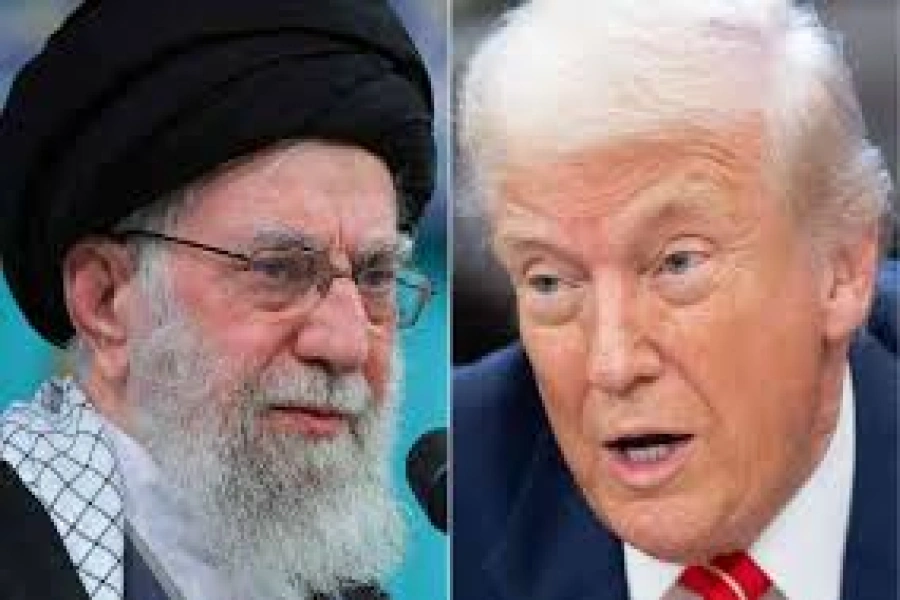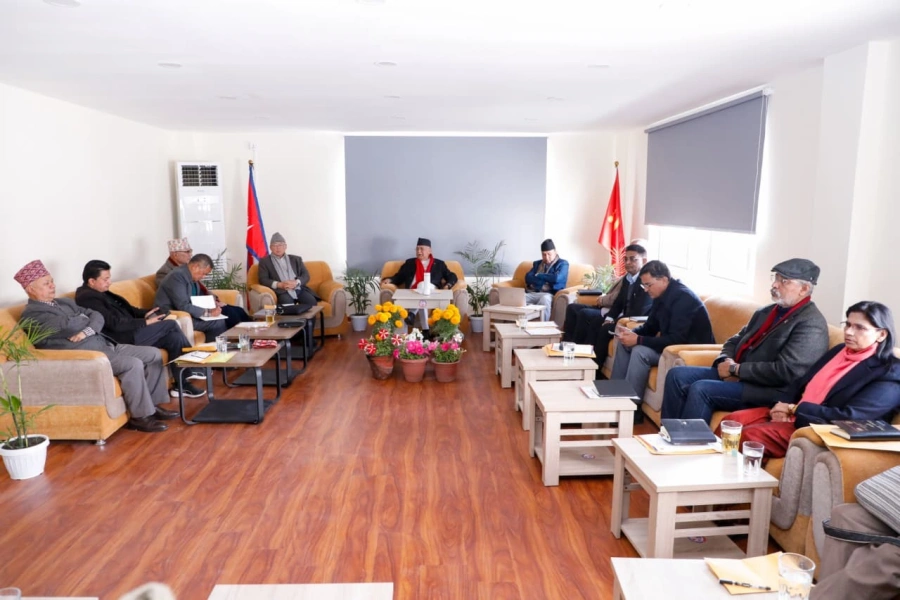Nawaraj was brave. He walked up fearlessly and while outnumbered still tried to reason. This is the courage we will all require. Let his death not go in vain.
In the last few weeks there have been two deaths that have shocked their respective nations. George Flyod who was killed in cold blood by a police officer in Minneapolis and Nawaraj BK who was lynched in west Rukum in Nepal. These were not acts of mindless violence but rather part of a systematic violence meant to keep an order and quell any threat to it. Unarmed Flyod was considered to be a threat to three armed police officers as one of them chocked him to death, despite his screams for help and Nawaraj whose act of walking to his lover’s house was considered to be too great a threat that he and his friends needed to be beaten, chased and then drowned in the river. They were both threatening a system, a mindset that is so afraid that it will not tolerate even a semblance of resistance and change, a system and mindset that created a certain establishment that has been working for centuries. As such both were killed long before their murderers even lifted a finger, their deaths were ordained centuries before they were even born. These were two institutional murders that have demonstrated the continuing existence and perhaps the thriving of two ancient and deep seated prejudices in human civilization: Caste and race.
The death of Flyod has evoked a strong international response, albeit a condemnable violent response in some cases, however the deep resentment and frustration is out in the streets. The response in Nepal to Navaraj’s murder in Nepal and in Indian Nepali community, in comparison, is a little muted.
How Indian Nepalis reacted
Justice for Nawaraj

The response among the Indian Nepali community is influenced by two ideas; one is based on casteism and the other on a denial of it. To say that caste structure in Darjeeling or rather amongst the Indian Nepali community is the mirror of Nepal is a gross understatement. The caste structure, rather than language, is what binds people from Nepal and the Indian Nepali together in an arrangement that transcends the nation state into a single social structure, a structure that can be termed a ‘Nepali geography’. For example, for an orthodox upper caste family, say Bahun, based in Kathmandu or rather in any other part of Nepal, a Damai from Darjeeling/Sikkim/Dehradun of India will still be a Damai. The same social distancing and other exclusionary practices needs to be observed as those required for a Damai from Nepal. Another strong example is marital relations; marriages between families in Nepal and Darjeeling/Sikkim/Dehradun/Northeast India or other parts of India has been a continuous phenomenon for the last century, provided they are from the same caste. However inter-caste marriage even if they are from the same country or region is difficult if not impossible as the case with Navaraj has shown. Hence nationality or nationalism is not as important as is caste, in such a scenario.
When, the news of Nawaraj reached here, people did not just see him as a fellow Nepali, albeit from Nepal, or a fellow human, an athlete, but what struck them first was his surname, Biswakarma, hence a Kami. This provided all the information that was required, a sort of an inbuilt justification. This sort of extreme disapproval to marriage with a Kami, Damai, Sarki is quite routine here and it usually leads to boycott, beatings and at times to deaths. Violence is after all glorified in a community so desperate to take up the mantel of martiality of the famed ‘Gorkhas’. This is not to say that anyone celebrated Nawaraj’s death or that it did not disturb anyone but it did not surprise anyone!
If anything, this story of Nawaraj will be used as one more argument by parents and family members for marrying within the caste (Jat ma Biha Garnu). It will be used as a veiled threat to discourage marriage with the ‘Sanu Jat Ko. Most dangerously, however, this may act as a precedent for future lynchings of Dalits on both sides of the border.
The second phenomena; the denial of caste, primarily stems from the Indian Nepali’s political identity, which is entirely based on a denial of Nepal or any connection with the country, a paranoia that extended to a change in nomenclature of the community to ‘Gorkha’ and language to ‘Gorkhali’ ( the historical irony is lost to us). Whenever the question of caste atrocities arises here in Darjeeling, there is almost a practiced response: There is no casteism in Darjeeling, it’s only in Nepal. Interestingly, once when I was speaking to a friend of mine from Kathmandu, the person said, “I think it happens in India because of the influence of north India on the Indian Nepali society.” I was left baffled: Where does caste exists, in India or Nepal? Or is it in our imagination? Were we merely imagining it, the snide comments, the denial of entry to the kitchen and the sacred sanctums, refusal to acknowledge marriage with us or in some cases violence and murder? If confronted they will name you the one or more Kami, Damai or Sarki teacher, friend or neighbour they know or of some relation who has married a person from the so-called lower caste. Of course, what they will not tell you is how that particular person is denied entry to the kitchen (Bhansa Ghar), or the household sanctums (puja kota) or how his/her caste is mentioned in a derogatory way when the person isn’t around, or how he/she would never be allowed to marry into their family or if he/she is already married how they are ostracised and denied participation in certain rituals. That part they usually leave out. If probed further, they will counter-question you about reservations in educational institutions, jobs and benefits for the lower castes (traditionally in India and now in Nepal) and some even say that they would rather be born a Dalit, since there are so many benefits. Somehow I doubt they would like the experience, and the measly reservation after centuries of 100 percent reservation in land ownership and government positions for the Bahun, Chettri, Thakuri, leading to immense capital accumulation for them while systematically socially and economically oppressing the Dalits. That reservation would seem like a pittance for the price it demands of daily ridicule, insult, exclusion and violence that being born a Kami, Damai and Sarki involves. The argument however is actually symptomatic of particular trend in Nepali society, across the borders; the strange denial of the existence of caste based discrimination rather of caste based hate while explicitly or implicitly practicing it.
Response in Nepal
Nepal, on the other hand, has seen a wide spectrum of responses; short films on You Tube, poetry, music, protests, statement by politicians and the call for and establishment of inquiry committees. What is most interesting here is the call and formation of the investigation team and the statement of Baburam Bhattarai. UN High Commissioner for Human Rights Michelle Bachelet has called for an independent inquiry into Navaraj’s killing. The use of the term ‘independent’ is interesting. It assumes that any governmental committee that will be formed will be inherently biased, considering how the Nepal state itself is dominated by the so-called upper castes namely the Bahun, Chettri and Thakuri. In such a scenario, though unpractical, this isn’t such a shocking suggestion. However, an investigation team has been formed by the government and no matter what they find out in the end and who they implicate this will be an exercise in futility. What killed Nawaraj and Flyod were the inherent mechanism of the state and society that is meant to keep them oppressed and one that will protect the murderers rather than punish them. Caste in case of Nepal has intertwined itself so perfectly within the state administration and in the conscience of the everyday life of the average Nepali that it could well be argued that Navaraj put himself in danger the moment he chose to fall in love with a Thakuri and killed himself when he went to her village, in hope that even if caught he could somehow reason with her family as civilized beings should. Caste after all has no locus standi in a civilized world, where a person with iota of common sense could argue against it. Of course, as decent human beings they would see sense in his arguments, little did he know that caste means power, and people do not give up power so easily. Furthermore by virtue of being a Kami, he was not even seen as a human. This is what all of us the Kami, Damai and Sarki know and this is what the committee report should say.
Baburam Bhattarai made an impassionate speech where he argued that all Nepalis should take up Dalit titles like Kami and, I am assuming, Damai and Sarki as well. While the statement and the intention behind it is well received, the suggestion itself is childish at best. Apart from the fact that there will be many people who would rather jump into the river themselves than do something like this, the suggestion also betrays a very poor understanding of how caste actually works. But Baburam Bhattarai has a PhD from the prestigious Jawaharlal Nehru University (JNU) and is someone who has worked in the rural areas of Nepal extensively during his days with the Maoist. His knowledge of Nepali society is not just theoretical but also one that is rooted in ground realities. He would know much better than anyone that his suggestion is ludicrous. Then he does have appearances to keep and people to placate, this statement is powerful on the face of it but it actually involves doing nothing. More than anything what made Baburam Bhattarai think that we will allow him to use our titles. Titles that bear the pain of slavery, humiliation, forced migration and death! Dr Bhattarai, you do not have the right nor the historical experience to call yourself Kami, or Damai or Sarki, titles that we must hold with pride. You have to bear the burden of your own history and weight of your own title.
The way ahead
Kami, Damai and Sarki were first mentioned in an inscription of Khas Malla empire in 13th-14th century in what is today western Nepal, Kumoan and Garhwal. From there to the point where Mulki Ain polished it to a bureaucratic perfection in 1854, our history is of at least 800 years. That was what Navaraj was against, 800 years of a system perfected, his love never stood a chance. In all this time if caste based discrimination could not go away then it will not end with government committees and a few protests. Our war will be long and our weapons will be education, organisation and only then agitation but the first battle will be fought against ourselves, against our own shame, we must be proud of our own heritage, be a proud Damai, Kami or Sarki and scream it out loud to people. Our very breath must become an act of resistance. The way forward is that of a continuous war, not one that will be fought with guns and weapons but on various ideological grounds and in many theatres of everyday life. Nawaraj was brave, no one talks about this, his was an act of unbelievable courage, he walked up fearlessly and while outnumbered still tried to reason. This is the courage we will all require, let his death not go in vain, let them know he wasn’t the last to stand up to them and that there will be more of us, let this be the spark that will light the fire of a social revolution.
Binayak Sundas, PhD from Centre for Historical Studies, Jawaharlal Nehru University, is Assistant Professor at the Centre for Himalayan Studies, University of North Bengal, Siliguri






































